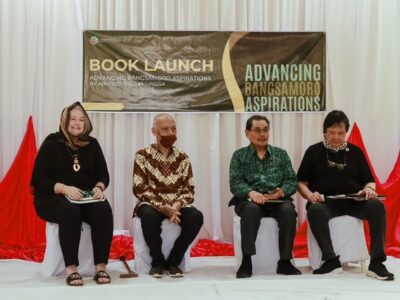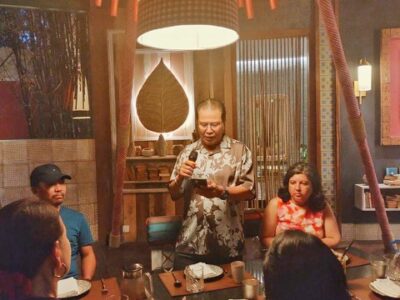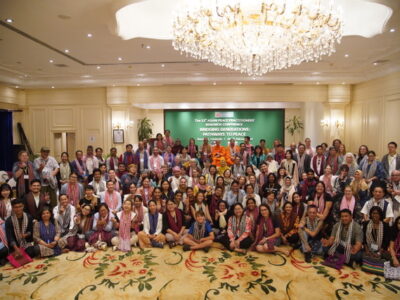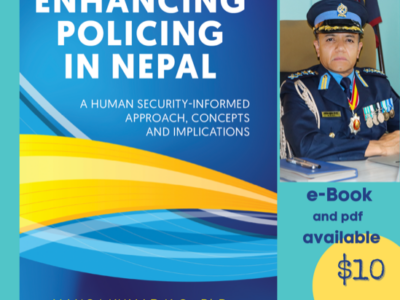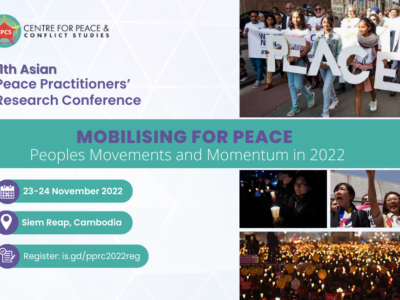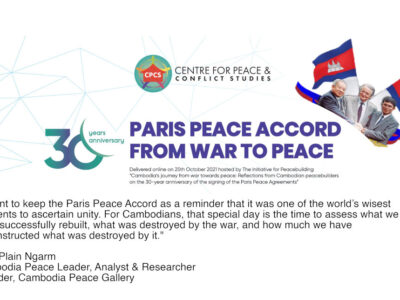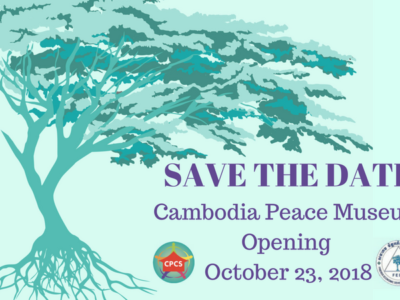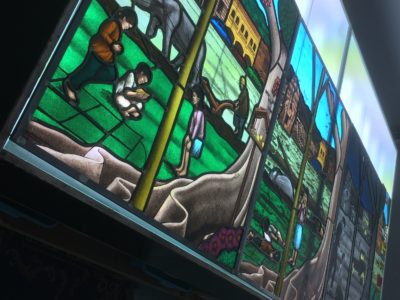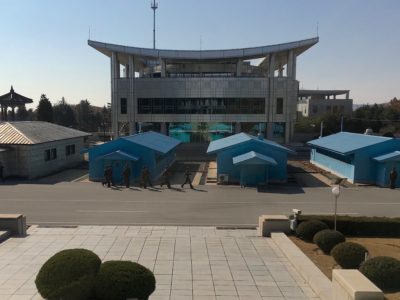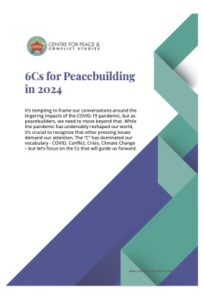
- About Us
- Publication
- ACTS Study
- Peace Conferences
- 2025 Peace Practitioners’ Research Conference
- 2024 Peace Practitioners’ Research Conference
- 2022 Peace Practitioners’ Research Conference
- 2020 Peace Practitioners Research Conference
- 2017 Peace Practitioners Research Conference
- 2016 Peace Practitioners Research Conference
- 2015 Peace Practitioners Research Conference
- 2014 Peace Practitioners Research Conference
- 2013 Peace Practitioners Research Conference
- 2012 Peace Practitioners Research Conference
- Contact Us
Homepage
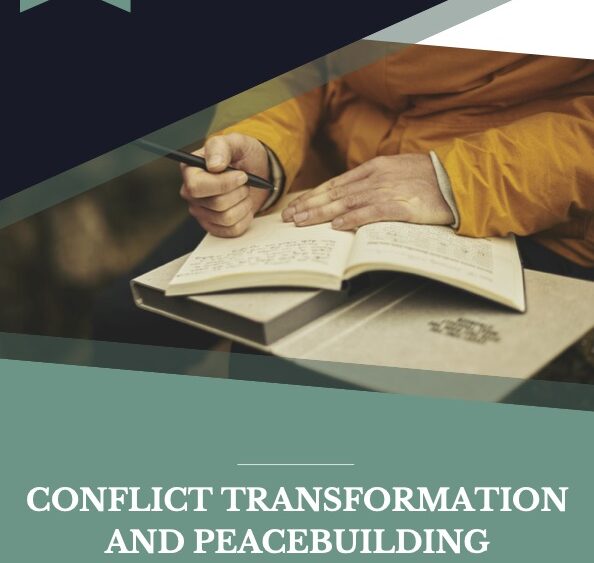 Featured Posts27 Apr 20250Soth Plai Ngarm, founding faculty of the Applied Conflict Transformation Studies (MA) and CPCS Board Chair, draws on more than thirty years of practical experience in conflict transformation and peace practice... Read More
Featured Posts27 Apr 20250Soth Plai Ngarm, founding faculty of the Applied Conflict Transformation Studies (MA) and CPCS Board Chair, draws on more than thirty years of practical experience in conflict transformation and peace practice... Read More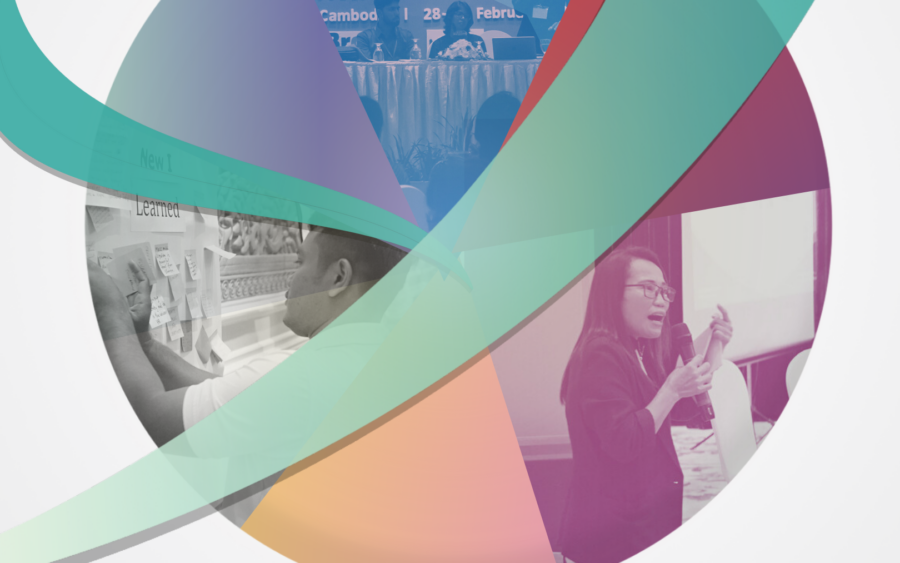 Featured Posts04 Apr 20250Join us for the 13th Asian Peace Practitioners Research Conference (PPRC) on August 6-7, with the theme “Leading Change: Strategies for Peace in a Shifting Landscape.” Date: August 6-7, 2025 Location: Siem Reap,... Read More
Featured Posts04 Apr 20250Join us for the 13th Asian Peace Practitioners Research Conference (PPRC) on August 6-7, with the theme “Leading Change: Strategies for Peace in a Shifting Landscape.” Date: August 6-7, 2025 Location: Siem Reap,... Read More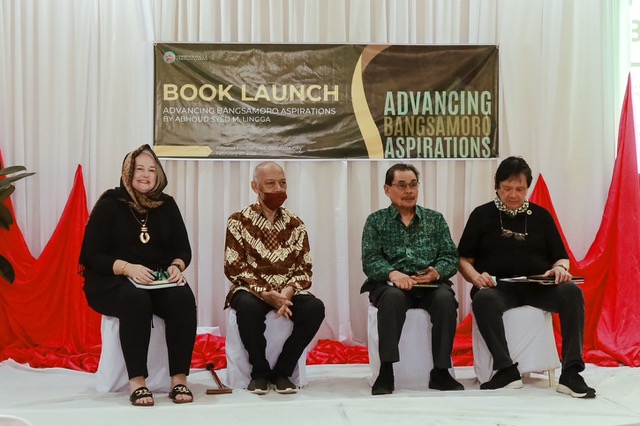 Featured Posts28 Feb 20250We celebrated the official launch of Advancing Bangsamoro Aspirations by the esteemed Professor Abhoud Syed M. Lingga on February 27 in Cotabato City, Philippines. As a renowned scholar and peace advocate,... Read More
Featured Posts28 Feb 20250We celebrated the official launch of Advancing Bangsamoro Aspirations by the esteemed Professor Abhoud Syed M. Lingga on February 27 in Cotabato City, Philippines. As a renowned scholar and peace advocate,... Read More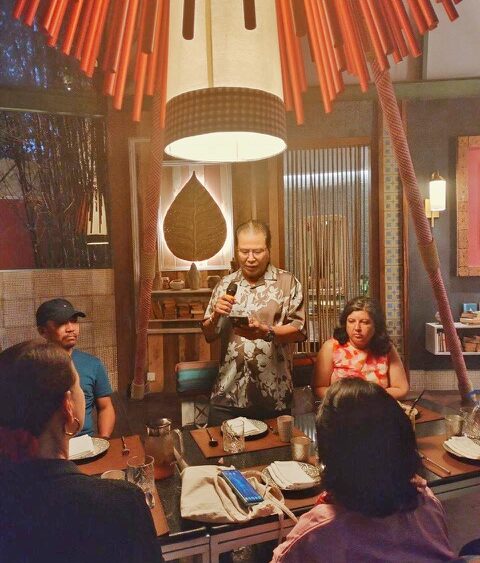 Featured Posts25 Feb 20250A message to peace builders in challenging times – CPCS Board Chair Soth Plai Ngarm remarks to the Applied Conflict Transformation Studies (ACTS) Masters and Doctoral students. Read Ngarm’s full remarks... Read More
Featured Posts25 Feb 20250A message to peace builders in challenging times – CPCS Board Chair Soth Plai Ngarm remarks to the Applied Conflict Transformation Studies (ACTS) Masters and Doctoral students. Read Ngarm’s full remarks... Read More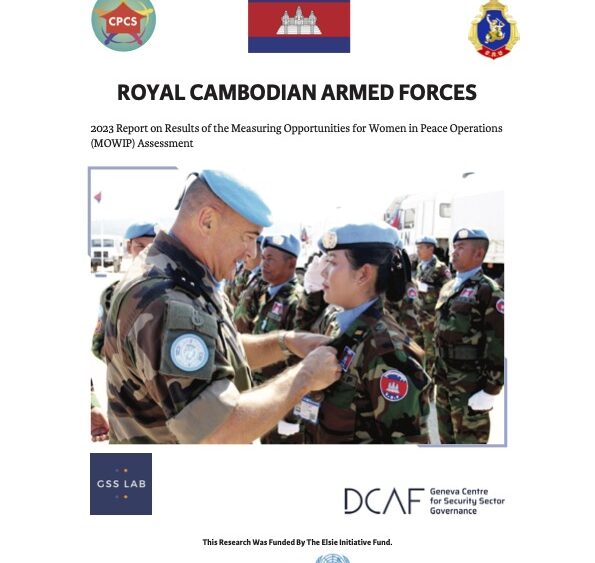 Featured Posts12 Dec 20240Utilizing the MOWIP framework developed by DCAF and Cornell University, the report provides key recommendations to promote gender equality in the Royal Cambodian Armed Forces (RCAF). It highlights best practices and... Read More
Featured Posts12 Dec 20240Utilizing the MOWIP framework developed by DCAF and Cornell University, the report provides key recommendations to promote gender equality in the Royal Cambodian Armed Forces (RCAF). It highlights best practices and... Read More
TENDER INVITATIONS
- We celebrated the official launch of Advancing Bangsamoro Aspirations by the esteemed Professor Abhoud Syed M. Lingga on February 27... Read More
Our commitment to peace must remain unwavering
A message to peace builders in challenging times – CPCS Board Chair Soth Plai Ngarm remarks to the Applied Conflict... Read More12th Asian Peace Practitioners Research Conference 2024
Inspired by the theme “Bridging Generations: Pathways to Peace,” the 12th Asian Peace Practitioners’ Research Conference (PPRC) hosted by CPCS... Read MoreEnhancing Policing in Nepal – A human security-informed approach, concepts, and implications
By Manoj Kumar K.C After a decade-long violent conflict, Nepal has entered a new era of political and social... Read More2022 Peace Practitioners’ Research Conference
The 11th Asian Peace Practitioners’ Research Conference (PPRC) aims to highlight the ways that people in Asia are mobilizing for... Read MoreParis Peace Accord from War to Peace
Delivered online on 25th October 2021 hosted by The Initiative for Peacebuilding “Cambodia’s journey from war towards peace: Reflections from Cambodian peacebuilders “Cambodia’s journey from war towards peace: Reflections from Cambodian peacebuilders on the 30-year anniversary of the signing of the Paris Peace Agreements”on the 30-year anniversary of the signing of the Paris Peace Agreements”Save the Date! Cambodia Peace Museum opens October 23, 2018
The Centre for Peace and Conflict Studies is pleased to announce that the Cambodia Peace Museum will open on October... Read MoreCambodia’s Journey: Told Through Stained Glass
Inspired by the museum’s commitment to celebrating Cambodia’s journey to peace, Australian artists Gerry Cummins and Jill Stehn have created... Read MoreCPCS in Pyongyang and the Demilitarised Zone
The Centre for Peace and Conflict Studies (CPCS) visited Pyongyang and the DMZ area in the Democratic People’s Republic of... Read More
LATEST PUBLICATIONS
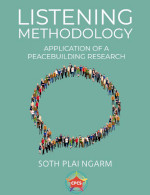 Listening Methodology
Listening Methodology
Application of a Peacebuilding Research
Author: Soth Plai Ngarm
Published by: CPCS
Published date: September 2022
The Listening Methodology is a qualitative research approach seeking to capture the feelings, thoughts, and opinions of communities living in a conflict to collect a unified voice and help amplify voices sidelined in peace processes. This manual briefly describes the listening methodology which aims to help conflict research practitioners develop and operate a listening project effectively.
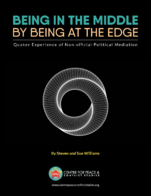 Being in the Middle By Being at the Edge
Being in the Middle By Being at the Edge
Author: Steven and Sue Williams
Published by: CPCS
Publication date: October 2020 (2nd Edition)
ISBN: 1 85072 13
This book elucidates the concrete experiences of the authors in political conflict mediation in Northern Ireland and Uganda. Written by two leading Quaker mediators, but, most case studies, quotes, stories and anecdotes described here are from a combination of sources that are useful to those who have acted as mediators and to anyone who may take on this kind of role in the future. Mediation and negotiation efforts described here provides different perspective of understanding political mediation. Engaging various key peace stakeholders in political settlement and utilizing the approach of working behind the scenes and leading from behind make all the processes possible.
Author: Centre for Peace & Conflict Studies (CPCS)
Published by: CPCS
Publication date: September 2020
ACTS MASTER'S PROGRAMME
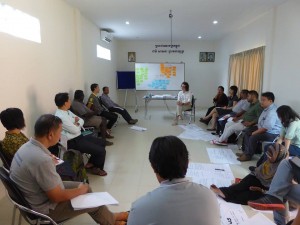 The Applied Conflict Transformation Studies (ACTS) Master’s Programme is unique in the field of conflict transformation though its utilization of a hybrid academic-practitioner perspective.
The Applied Conflict Transformation Studies (ACTS) Master’s Programme is unique in the field of conflict transformation though its utilization of a hybrid academic-practitioner perspective.
The part-time programme, provided in partnership with Paññāsāstra University of Cambodia, offers a thorough, rigorous, dynamic and state-of-the-art approach, drawing on the latest developments in the field and contextual peace practices throughout Asia.
OUR WORK
Read MoreThe overarching framework for CPCS’ approach is anchored on the principles of demand-driven interventions that address the requirements of the stakeholders and the underlying causes of the conflict:
FEATURED VIDEO
Read MoreSUPPORT THE PEACE MUSEUM!
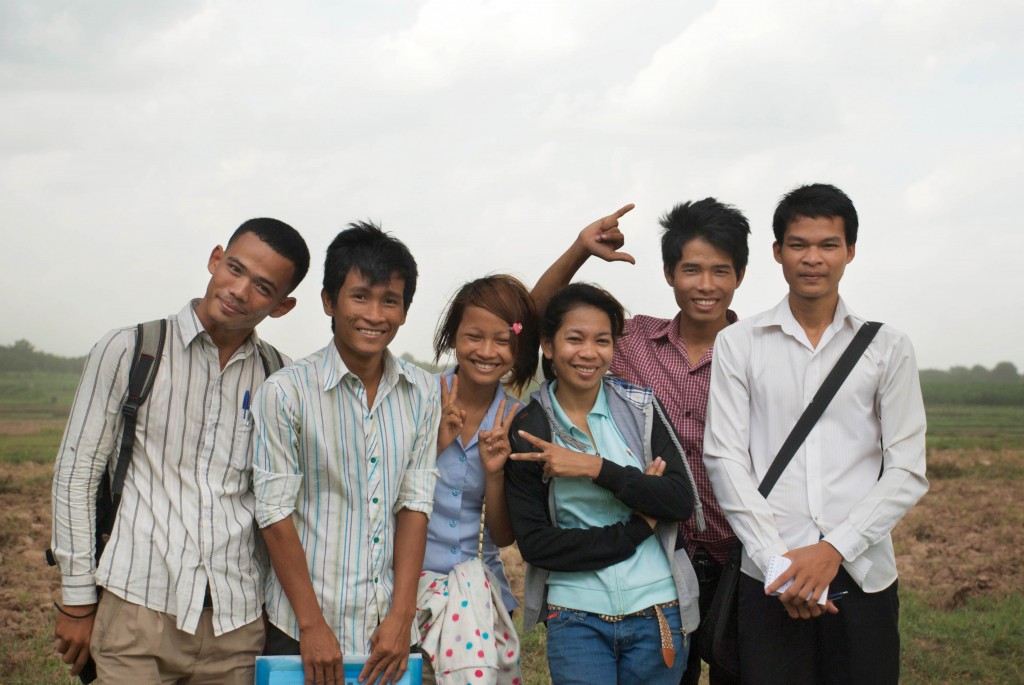
CAMBODIA PEACE MUSEUM
CPCS is in the process of establishing the Cambodia Peace Museum, an educational and experiential space geared towards supporting a wider national healing process – one which highlights the resilience of Cambodia’s people in transforming conflict and overcoming adversity, as well as the nation’s potential as a peacebuilding learning centre for it’s regional neighbours.
